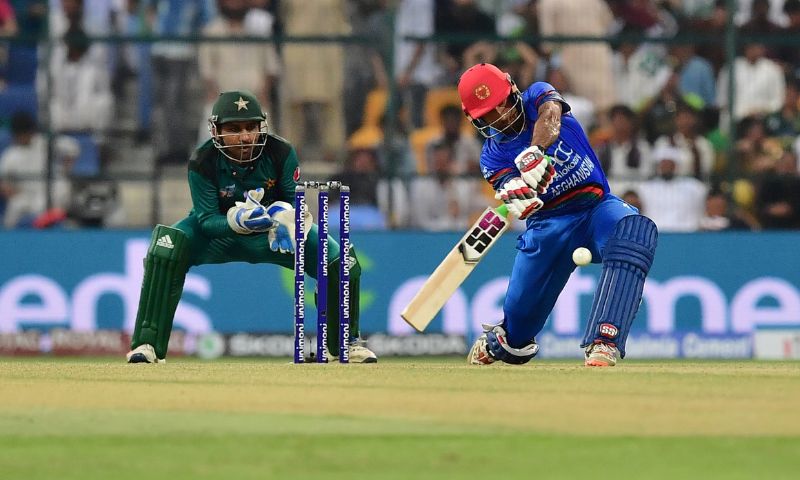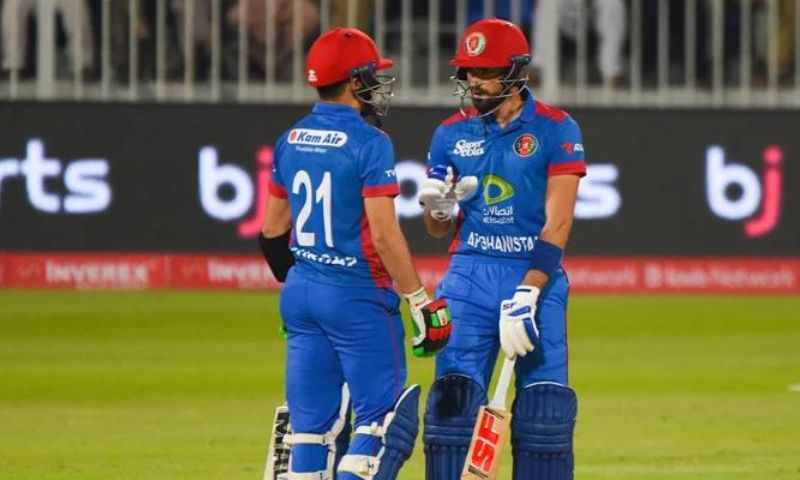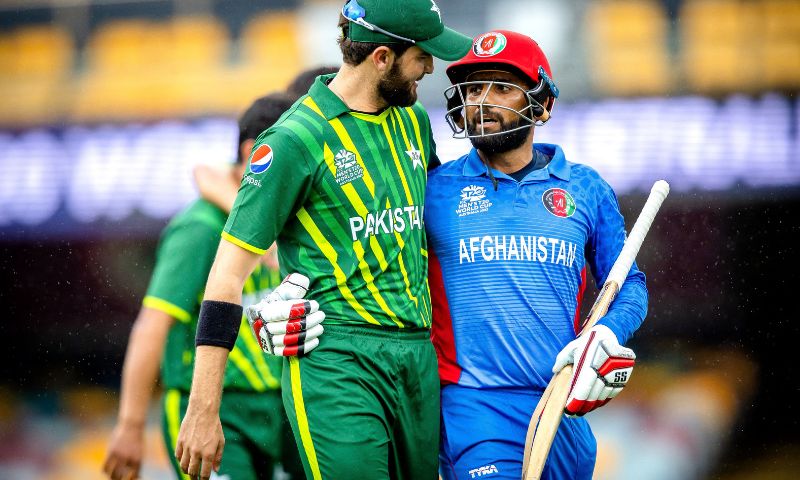Shahid Akhtar Hashmi
“No experiment is ever a complete failure. It can always be used as a bad example.”
US writer Paul Dickson
“Negative results are just what I want. They’re just as valuable to me as positive results. I can never find the thing that does the job best until I find the ones that don’t.”
Famous scientist and inventor Thomas A. Edison
So when one experiment, as the above quotes suggest, it teaches how to avoid failure and repeat success.
One must give credit to the Pakistan Cricket Board’s management committee, more so to its chairman Najam Sethi, for being clear in mind: to check the bench strength of Pakistan’s Twenty20 international team in the “not so important” (that’s how Sethi put it) series against Afghanistan. He nonchalantly declared that “what if we lose, no problem with that.” One other thing that has been admirable about Sethi is that he gathers information, makes his own assessment, and takes a decision.
This time he or someone in the PCB leaked to the media that a few players including the regular skipper of all three formats, Babar Azam, will be rested for the Afghanistan series. There was an uproar in the media and anxiety among the players. The uncertainty continued. First, it was speculated that Shaheen Shah Afridi — who bravely led Lahore Qalandars to the successful defense of the Pakistan Super League — would lead the side. Then it was announced that Shadab Khan — the original vice-captain and heir to Babar’s throne — would captain the team.

Bravely enough, the PCB announced the squad with five players — Babar, his prolific opening partner Mohammad Rizwan, dashing batter Fakhar Zaman, and pace duo of Shaheen and Haris Rauf were all rested. If reports were to be believed, these senior players did not want rest. The timing of resting, at least Babar, wasn’t appropriate. There was a vilified campaign against Babar on social media, Facebook, and television channels.
Despite Babar leading Pakistan to the semi-final of the Twenty20 World Cup 2021 and to the final a year later, the knives were out. So to keep Babar out of the series meant that the PCB had bowed under that pressure. The uncertainty that crept up prompted Sethi to come and clarify the situation while Haroon Rasheed, the chief selector, announced the squad in his usual obsequious manner.
The first question was: did anyone speak to the senior players? Sethi clarified that he had spoken to the players, including Babar, taking them into confidence. “I have spoken to all the senior players, have taken them into confidence about resting them for the Afghanistan series,” Sethi said before the announcement. He emphasized that “Babar is our captain and an asset so you will see him return in the next series.”

So the decision was taken amidst a mixed reaction. The breakout performers of the Pakistan Super League season 8 were rewarded. No less than eight changes were made from the side that lost the final of the Twenty20 World Cup to England in November last year. Four uncapped players got the nod. Opener Saim Ayub, for his impressive power and innovative hitting, Ihsanullah for his 22 wickets, and for the fire, he exuded in the tournament.
Tayyab Tahir was lucky for his 137 runs in five innings weren’t as impressive, but the fact that he had been performing at the domestic level paid dividends. The fourth newcomer was Zaman Khan, who has been outstanding for Lahore Qalandars. The slinger took 15 wickets to add to his 18 in last year’s PSL. Four players were given a recall — Imad Wasim, Faheem Ashraf, Azam Khan, and Abdullah Shafique.
Any misgivings that all these youngsters would take Sharjah by storm proved wrong in the first match. The management, including the new captain, seriously erred by giving all four new players T20I debuts, while all those on the comeback trail were also included in the eleven for the first match. As a result, the new players found the bitter truth that international cricket is quite different from the PSL. They suffered nervousness as the low and slow bounce of the Sharjah pitch and the deceptive Afghan spinners were too good for them.
The comeback boys were pragmatic and cautious, having a fear of losing their places. Saim fell for a well-shaped 17, and Tayyab Tahir looked good for his 16 but fell in a comical way. Those staging a comeback also suffered contrasting luck; Shafique and Azam fell without scoring, Faheem Ashraf managed two, but Imad carried his PSL form by scoring 18, the highest of the innings. Imad and Shadab Khan (12) added 19 for the sixth wicket — the highest of the innings. Pakistan managed a mere 92-9. The Afghanistan spinners dominated; Mujeeb Ur Rahman took 2-9 while Mohammad Nabi grabbed 2-12 and Rashid Khan 1-5. Fast-rising left-arm pacer Fazalhaq Farooqi took 2-13 and impressed with his pace and swing.
That low total did not cause major worries to Afghanistan despite losing four early wickets for 45. But the old fox Nabi and Najibullah Zadran made sure the six-wicket victory was achieved in the 18th over. So calculative and cool was Nabi that he hit his first boundary off the 27th delivery and guided the chase with a run-a-ball 38, hitting Ihsanullah for a huge six for the winning shot.
Pakistan’s only plus point was Ihsanullah’s bowling. The lanky pacer from Matta village in Swat took a first-ball wicket on his T20I debut and then added another off the third. He is only the second Pakistan bowler behind Aamer Yamin to take a first-ball wicket on his T20I debut. Later in the press conference, Shadab admitted nervousness among the new players but vowed they would overcome that in the remaining matches.
Batting again came a cropper in the second game. Pakistan managed 130-6, with Imad Wasim hitting a slow-paced 57-ball 64 not out. But it was he who led Pakistan’s recovery after Farooqi dismissed Saim and Shafique for naught inside three deliveries of the match. Shafique, touted as the most talented batter among the new players, fell for his fourth successive T20I in five T20Is. Azam Khan, so impressive with his power-hitting in the PSL 2023, again failed to get going, trapped leg-before by Rashid for one. Mohammad Haris made a quickfire nine-ball 15 while Tahir took 23 balls to score 13.
Shadab once again helped Imad up the tempo, adding 67 for the sixth wicket. Chasing another low total, Afghanistan lost Usman Ghani on 30 before Rahmanullah Gurbaz (44 off 49 balls with six and two fours) and Ibrahim Zadran (38 off 40 balls with three boundaries) took Afghanistan to 86 in 15.3 overs. But they were slow and left the asking rate at around nine in the last five overs. Nabi and Najibullah came to their rescue, plundering 17 off the 19th over by Naseem Shah, and although Zaman Khan — defending just five runs — gave them a scare with just three runs in the first four balls, Zadran hit a boundary to seal the seven-wicket victory.
This gave Afghanistan a 2-0 unassailable victory in the series — their 18th T20I series win but first over a top six ICC ranked team. In fact, it was their first bilateral series against a top-six-ranked country.
Pakistan avoided a clean sweep in the third match as they not only selected a more balanced eleven but batted with resolve and bowled with the firepower to achieve a consolation 66-run win. Wisely enough, senior batter Iftikhar Ahmed was brought back for misfiring Azam, and Naseem was rested to bring in Mohammad Wasim. Shadab won the first two tosses, but Rashid won the last, but it was Pakistan who batted first on all three occasions. Pakistan lost Mohammad Haris early, caught for just one.
Then Saim Ayub led the foundation with a gritty 40-ball 49 inclusive of two sixes and four boundaries. Shafique also overcame first ball jitters, smashing a beautiful inside-out six towards extra cover — a short worth forgetting his two blobs in the first two outings. His 23 off 13 balls had two sixes and a boundary. Like he always does, Iftikhar took time to settle but hit two sixes in his 25-ball 31. Shadab gave the innings the finishing touches with a sedate 17-ball 28 not out, studded with five boundaries. A total of 182-7 looked defendable.
Pakistan defended it with style as Ihsanullah (3-29) did the early damage while Shadab’s 3-13 ensured victory was achieved. Shadab’s wicket with Usman Ghani made him the first Pakistani bowler — seventh overall behind Tim Southee, Shakib Al Hasan, Rashid Khan, Ish Sodhi, Lasith Malinga, and Mustafizur Rahman to complete 100 T20I wickets.
Ihsan’s ferocious bouncer hit Najibullah on the chin, and the batter had to retire hurt with a bleeding chin. Azmatullah Omarzai was allowed to bat in his place as a concussion substitute, top scoring with 21.
Admittedly, there were fears of crowd trouble in Sharjah. It had a basis. The trouble was caused in the stands in the 2021 T20 World Cup in Dubai and then more significantly in Sharjah during the Asia Cup game last year. Some fans, most reports suggested Afghanistani fans, damaged chairs in the stand after Naseem Shah snatched victory from Afghanistan with his two sixes in the last over. Some arrests were made by Sharjah police. An over before the final sixes, Asif Ali and Afghanistan pacer Farid Malik also had a verbal clash, resulting in Asif pushing the other player.
To avoid any trouble, the Sharjah organizers made separate sitting arrangements for the two sets of fans. The Afghan fans were placed in the North stand, and Pakistanis were on the other side.
The series went without any trouble. The two sets of players offered prayers together and sent messages of peace and friendship. It was all summed up when Gulbadin Naib light-heartedly declared that “all Afghanistan players were targeting Naseem because of the hurt his two sixes in the Asia Cup gave,” but ended up saying,” Naseem is like a younger brother to all of us.”
The crafty and catchy picture of Ishanullah meeting the injured Najib after the match, hugging him, and asking for his well-being summed up the spirit and camaraderie.

Result of the experiment and lessons:
The motive of checking the young talent was achieved in the series. But the end result and the motive could have been achieved with some better planning. The fact remains that there is a huge gap between Pakistan’s domestic cricket and international cricket. The performers of your domestic cricket should be graduated and groomed rung by rung.
The next step for domestic cricket performers is the “A” tours. It would have been better had the breakout performers of the PSL been sent as an “A” team to either Ireland, the Netherlands, or Scotland/ Zimbabwe. Once they had competed at the next level, they would have been more equipped to handle the pressure of international cricket.
Rashid Khan summed up the whole situation. “We in Afghanistan need to improve our domestic cricket structure because international cricket is not the place to make these young players.”
So, just like Edison believed, this experiment must allow the PCB to learn. Teams are not built overnight. Mix and match youngsters with seniors, don’t destroy the team’s nucleus. Small, wise steps bear fruit, not haphazard and blatant moves.






















